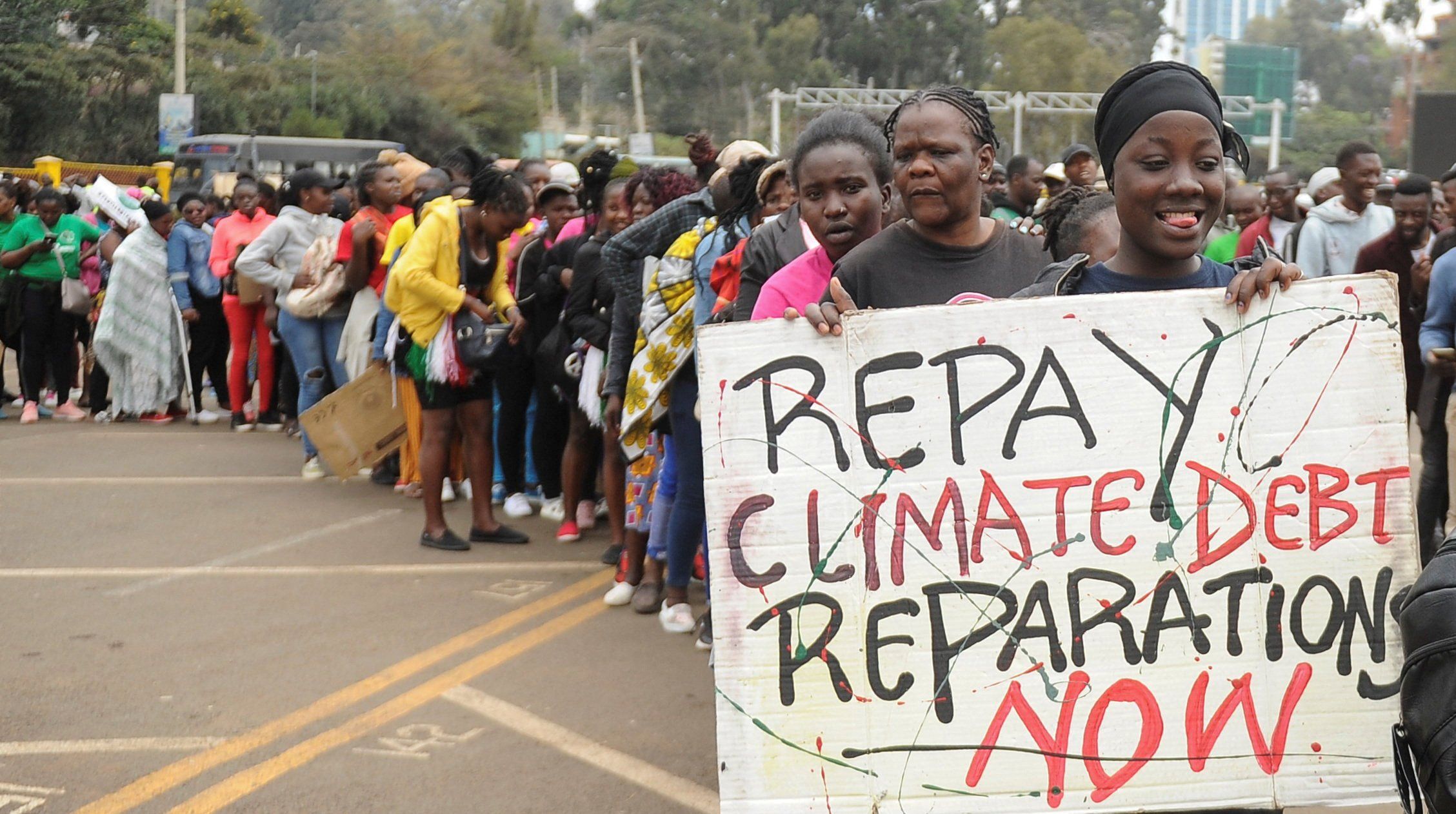Dozens of world leaders are currently meeting in Nairobi, Kenya, for the first-ever Africa Climate Summit. While these gatherings often serve as mere talk shops, this summit represents a symbolic opportunity for the continent to lead on an issue that overwhelmingly affects its 1.3 billion people.
And there’s plenty of hype to back it up: An above-the-fold headline in the Daily Nation, a Kenyan daily newspaper, proclaimed this gathering as “Africa's moment.” Some big news has already come out of the summit, which ends today, but not everyone is happy about where things stand.
What’s on the agenda and what’s at stake?
The view from Africa. Africa is the world’s fastest growing continent, but it’s also the most vulnerable to the whiplash of a warming planet. Indeed, of the 20 countries hardest hit by the climate crisis, 85% are in Africa, US climate envoy John Kerry said this week.
Seeking to be a regional leader on the issue, Kenyan President William Ruto, who came to power in 2022, has made climate change mitigation – and accountability – a cornerstone of his foreign policy. Addressing the conference on Tuesday, Ruto claimed that climate change is crimping the continent’s economic growth by 5-15% annually, despite the fact that the continent accounts for less than 4% of global emissions.
But the focus of the summit, as laid out by the host, is not to reinforce a sense of victimhood, but rather to flip the script so that stakeholders come to see resource-rich African states as crucial stakeholders in the green economy. (Consider that despite the region’s abundance of natural resources, it accounts for just 3% of global energy investments.)
So far, what’s come out of the meeting? Large economies appear to be throwing money at the problem. The US, for its part, pledged $30 million to help the continent deal with climate-induced food insecurity, about one-third of which will go towards finding technical solutions to food scarcity and storage. Meanwhile, the EU pledged €1 billion ($1.08 billion) to make emerging African markets more attractive for foreign energy investors.
But perhaps the biggest news came from investors in the oil-rich United Arab Emirates, who announced a deal to buy a whopping $4.5 billion worth of carbon credits from the Africa Carbon Markets Initiative, which was formed last year to expand the continent’s involvement in the voluntary carbon trade market.
"The main takeaway so far is the deepening of relations with the Middle East on climate issues," says Franck Gbaguidi, a climate and energy expert at Eurasia Group, adding that "the goal is to develop 15 GW of clean power [in Africa] by the end of the decade."
Recap: What are carbon credits again?
Carbon credits are part of a broader cap-and-trade scheme that, in theory, aims to minimize global greenhouse gas emissions. These are most commonly used by companies that get a number of credits – each one equal to one ton of carbon dioxide – which can then be used to sell and trade excesses with other companies through clean investments in things like renewable energy or forests.
Take one recent example, whereby a group of Saudi companies purchased a whopping $2.2 million tons of carbon credits, 70% of which were linked to African projects, including a scheme to supply environmentally friendly cookstoves to communities across Kenya and Rwanda.
Still, many people aren't on board with this approach. Around 500 people marched in Nairobi on Monday to protest the carbon offset scheme. They say that carbon credits are used by Western corporations to further their own bottom lines while doing little to minimize dirty emissions. They’ve also raised questions about a lack of transparency and questionable quality of some of these investments.
What's more, in the lead-up to this week's event, activist organizations condemned the summit for backing “false solutions,” calling instead for climate reparations and debt relief as a way to reconcile the burden faced by emerging markets as a result of rapid development in the West.
Looking ahead. The Africa summit is just round one. In November, delegates from around the world will flock to Dubai for COP28, the annual UN Climate Conference, and regional African heavyweights want to make sure that their voices have been heard.
"There's a strong sense that the topic is becoming a top priority for many African governments and heads of state are trying to speak with one voice ahead of COP28," Gbaguidi says. Yet, while "they are all on the same page regarding the need for more climate finance ... they are more divided, however, regarding the pace of decarbonization -- Kenya, the host, is the most ambitious country here," he says.
Still, a huge chasm exists between expectations and reality. A recent report by the Climate Policy Initiative found that $277 billion annually is needed to help the region meet its 2030 climate goals. That’s a lot more than the $30 billion currently flowing into the continent each year.
- The state of multilateralism: Shaky, fragile & stretched to capacity - GZERO Media ›
- Ian Explains: Can we save the planet without hurting the economy? - GZERO Media ›
- Africa's economy could rival China or India, says WTO chief Ngozi Okonjo-Iweala - GZERO Media ›
- The Global South is angry and mistrustful - Ian Bremmer - GZERO Media ›
- "Climate is a problem, not the end of the world" - Danish author Bjorn Lomborg - GZERO Media ›
